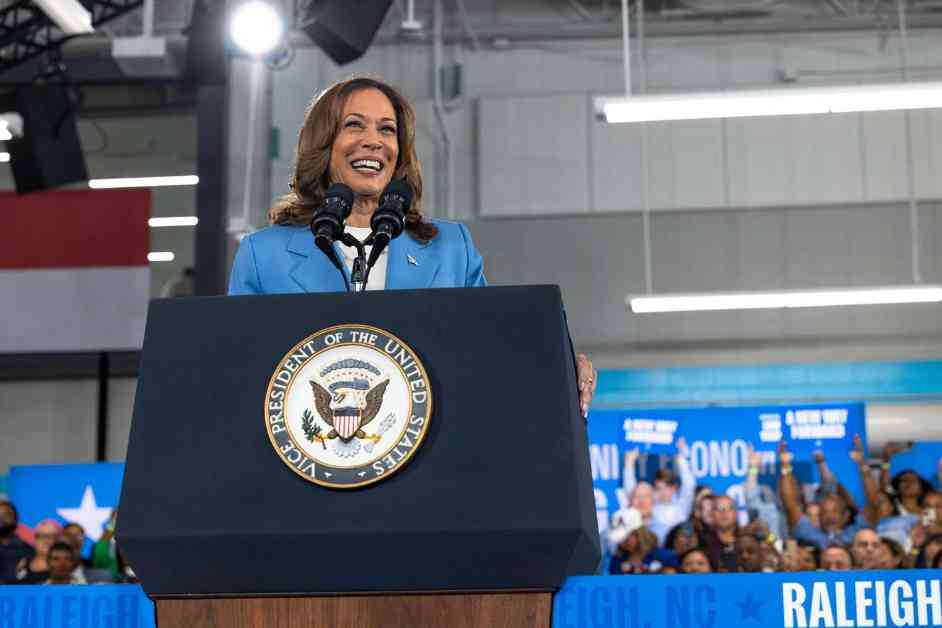**Kamala Harris Economic Plan: A Detailed Look at Key Points and Analysis**
Vice President Kamala Harris recently unveiled her comprehensive economic agenda, outlining various proposals aimed at providing tax breaks for middle-class families and addressing the rising costs of living, such as rent and grocery prices. Harris’s plan builds upon many of the policies put forth by President Joe Biden, emphasizing the importance of supporting working families and promoting economic stability.
**Expanding on Biden’s Policies**
During her campaign speech in North Carolina, Harris highlighted several key proposals that expand on the initiatives introduced by the Biden administration. For instance, while Biden had advocated for $25,000 in downpayment assistance for first-generation first-time homebuyers, Harris proposed extending this assistance to all first-time buyers, regardless of their parents’ homeownership status. Additionally, Harris suggested increasing the child tax credit to $6,000 for newborns, a significant boost from the current $2,000 maximum.
In terms of affordable housing, Harris called for a substantial investment of $40 billion to promote the construction of new homes and address the housing shortage that has contributed to escalating prices. By offering tax incentives to builders and streamlining the construction process, Harris aims to create a more balanced housing market that benefits both renters and prospective buyers.
**Contrasting Approaches with Trump**
Harris’s economic agenda stands in stark contrast to that of her Republican opponent, former President Donald Trump. While Trump has focused on initiatives such as deporting immigrants and increasing tariffs on imported goods, Harris has prioritized policies that directly impact the financial well-being of middle-class families. Despite their differences, both campaigns have proposed increasing the child tax credit and eliminating income taxes on tips, demonstrating some common ground on certain economic issues.
**Challenges in Implementation**
If elected president in 2024, Harris’s proposed economic reforms would face the challenge of garnering support from Congress, where Republicans currently control the House of Representatives. The divided political landscape underscores the difficulty of enacting comprehensive economic policies that require bipartisan cooperation. However, Harris remains committed to pursuing her agenda and creating opportunities that enhance the economic security and dignity of the middle class.
**Addressing the Housing Crisis**
One of the central pillars of Harris’s economic plan is tackling the affordability crisis in the housing market. With the shortage of available homes driving up prices for both renters and buyers, Harris has proposed ambitious measures to close the housing gap and lower costs. By incentivizing builders to construct starter homes, investing in local construction projects, and reducing regulatory barriers, Harris aims to increase housing supply and alleviate the financial burden on households.
In addition to supporting first-time buyers through tax credits and assistance programs, Harris has pledged to crack down on corporate entities that manipulate rental prices and engage in anticompetitive practices. By holding companies accountable for price gouging and preventing large investors from dominating the housing market, Harris aims to foster a more equitable and affordable housing landscape for all Americans.
**Promoting Consumer Protection**
Harris’s economic agenda extends beyond the housing sector to address other key areas of consumer protection. In response to concerns about rising grocery prices, Harris has proposed a federal ban on price gouging on food and groceries, emphasizing the need to shield consumers from unfair pricing practices. Furthermore, Harris has pledged to strengthen antitrust enforcement in the food industry to prevent monopolistic behavior that drives up costs for consumers.
Moreover, Harris has outlined plans to reduce prescription drug costs and expand access to affordable medications. Building on the Biden administration’s efforts to lower drug prices through Medicare negotiation, Harris aims to extend these cost-saving measures to all Americans. By capping prices for essential medications like insulin and limiting out-of-pocket expenses, Harris seeks to alleviate the financial burden on individuals and families struggling to afford necessary healthcare.
**Conclusion**
Vice President Kamala Harris’s economic plan represents a comprehensive and forward-thinking approach to addressing the financial challenges facing middle-class families. By expanding on President Joe Biden’s policies and introducing new initiatives to promote housing affordability, consumer protection, and healthcare access, Harris demonstrates a commitment to creating a more equitable and prosperous society. While facing obstacles in implementation due to political divisions, Harris remains dedicated to championing the economic interests of working Americans and building a brighter future for all.

















